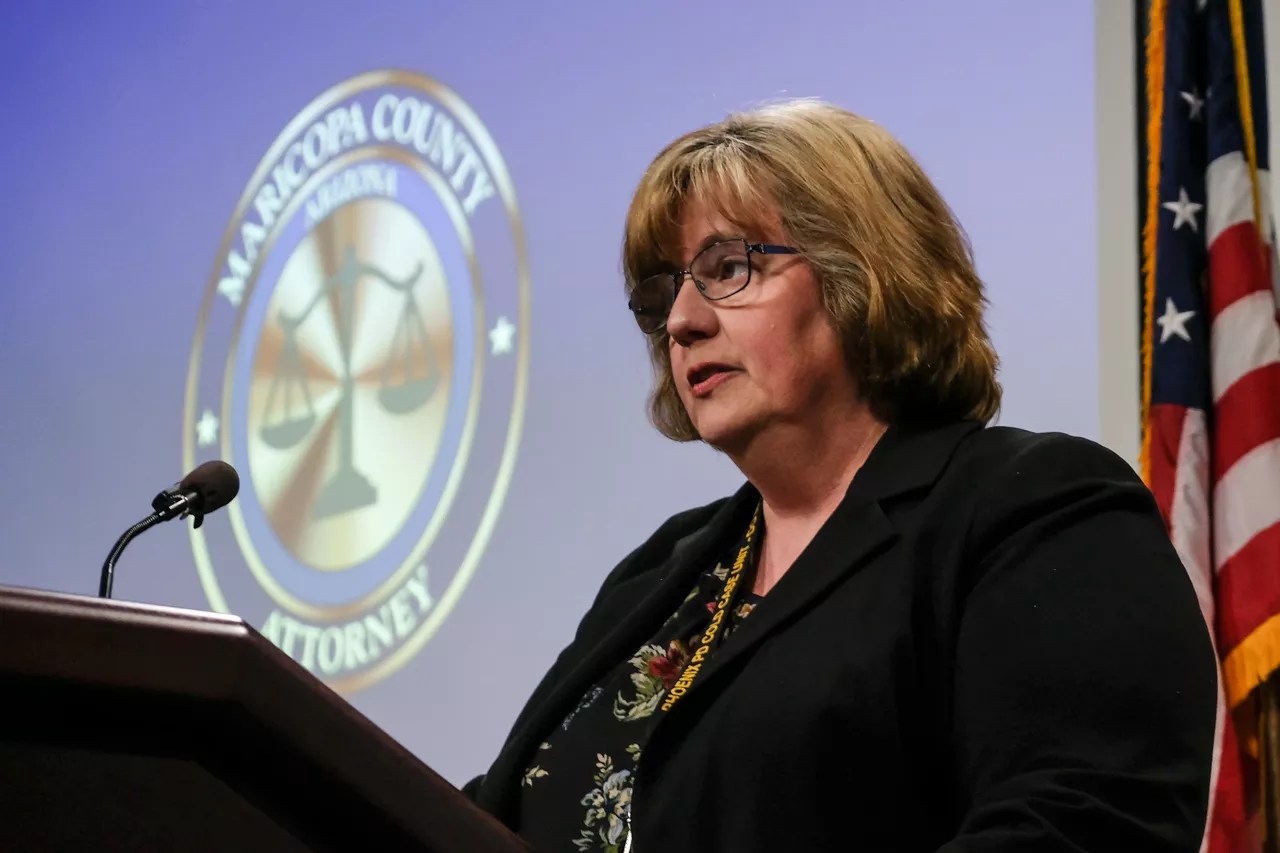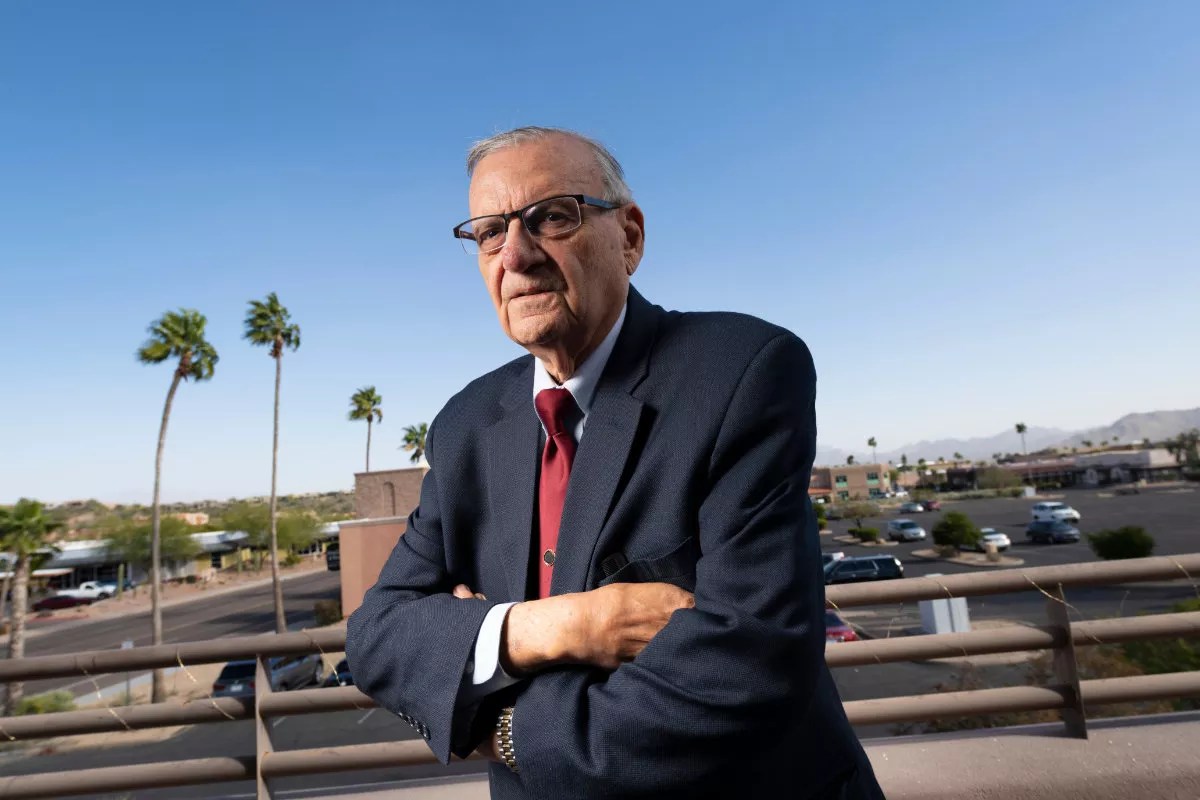
Katya Schwenk

Audio By Carbonatix
Two years, two months and two weeks have passed since the U.S. Department of Justice began its wide-ranging investigation of the Phoenix Police Department.
While investigators inch toward a resolution, Maricopa County Attorney Rachel Mitchell rebuked the DOJ’s effort to assess the practices of Phoenix police.
“I know that we’re looking at another DOJ investigation into the city of Phoenix. I’m not sure people understand how controlling that is and how much money that involves,” Mitchell said Wednesday at a press conference. “It has grown into a cottage industry that is costing taxpayers millions and millions of dollars.”
Mitchell’s comments on federal oversight echo those of Sheriff Paul Penzone, who announced on Oct. 2 that he would be stepping down and not seeking reelection. During his announcement, Penzone let bitterness flow toward the federal court oversight that he inherited from notorious former Sheriff Joe Arpaio.
“I’ll be damned if I’ll do three terms under federal court oversight for a debt I never incurred and not be given the chance to serve this community in the manner that I could if you take the other hand from being tied around my back,” Penzone said.
The investigation into departmentwide racial profiling practices under Arpaio began in 2008 when Latino drivers sued the Maricopa County Sheriff’s Office. Over the past 15 years, the department’s failure to comply with court orders to effectively handle the more than 2,000 unresolved misconduct cases on its books has cost it $250 million.

Former Maricopa County Sheriff Joe Arpaio.
Pablo Robles
A costly, cautionary tale
The DOJ launched its sweeping investigation in Phoenix police on Aug. 5, 2021 for a host of alleged police misconduct, including excessive force and retaliation against protesters. The investigation also reviewed the department’s training, supervision, policies, use-of-force investigations, and “systems of accountability.”
As officials await a decision from the DOJ’s investigation, Mitchell expressed concern that a consent decree, or agreement between Phoenix police, the city and the DOJ, could hamper her office’s ability to prosecute crime.
“If they (Phoenix police) don’t have the adequate personnel to investigate cases, that’s going to slow down investigations getting to us. It may slow down evidence being gathered, et cetera,” Mitchell said. “We work as a team in terms of holding people accountable for crimes, and if one part of the team is tasked with doing other things, that does impact.”
The city had spent about $5 million as of the investigation’s two-year mark in August.
The Phoenix police department gained national infamy in the late 2010s for its use of force. In 2018, 47 people were killed by police in Maricopa County, the highest total for a U.S. county, according to Campaign Zero’s Mapping Police Violence database.
In March 2022, ABC15 reported that the rate of deadly incidents involving Phoenix police between 2013 and 2022 was double that of the number two city, San Antonio. Reporters used the same data from Campaign Zero.
Chief Michael Sullivan has led the Phoenix police since 2022. He was brought in to reform the department while it cooperated with the DOJ investigation, emphasizing de-escalation techniques even as police use of force remains high.
Phoenix police officers have shot and killed 11 people so far this year. Officers also were involved in five other fatal incidents. In some of those cases, the Maricopa County Office of the Medical Examiner determined that the deaths were not caused by officers.